Magnesium is a vital mineral that plays a crucial role in maintaining various bodily functions. However, many people are unaware that they might be deficient in this essential nutrient. In this article, we will explore 12 signs that indicate you might be lacking magnesium and 12 foods that can help you boost your magnesium levels.
1. Muscle Cramps

Muscle cramps can strike when you least expect them. If you’ve ever been jolted awake by a sudden leg cramp, you know the pain can be intense. These cramps are often a sign of magnesium deficiency, as magnesium plays a role in muscle function and relaxation.
Adding magnesium-rich foods to your diet, such as nuts and seeds, can alleviate this discomfort. Pumpkin seeds, almonds, and cashews are excellent sources.
Incorporating these foods can help keep those pesky cramps at bay and ensure your muscles are functioning smoothly.
2. Fatigue

Feeling more tired than usual? Fatigue might be your body’s way of telling you it needs more magnesium. This mineral is crucial for energy production, and low levels can lead to a constant state of tiredness.
To combat fatigue, consider adding whole grains, such as brown rice and quinoa, to your meals. These grains are not only rich in magnesium but also provide sustained energy.
With the right dietary changes, you can regain your vitality and tackle the day with renewed energy.
3. Anxiety
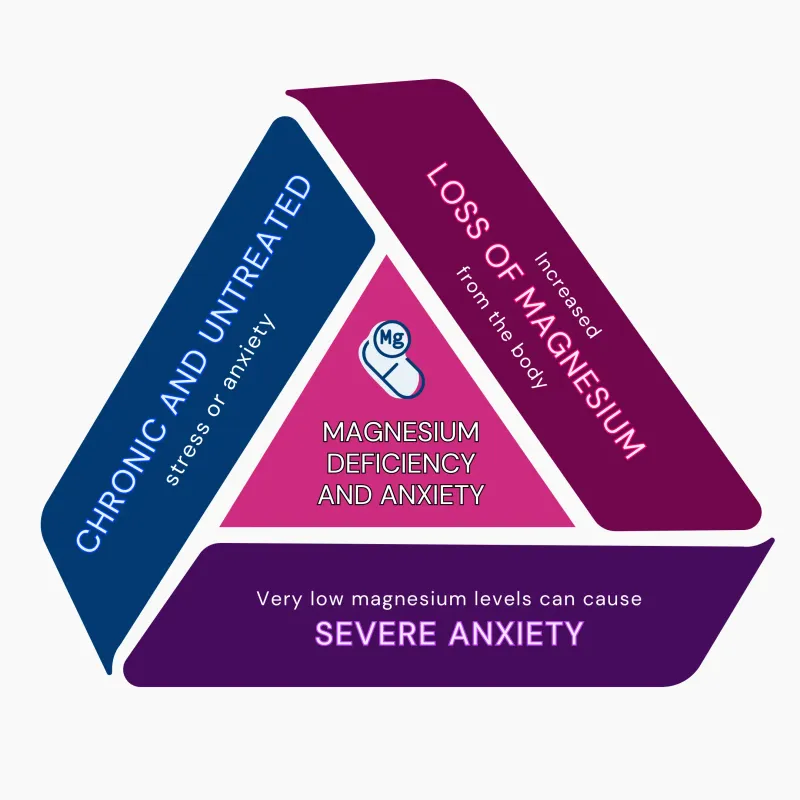
Anxiety can manifest in many forms, from mild unease to intense dread. A lack of magnesium might exacerbate these feelings, as magnesium is important for nerve function and mood regulation.
Dark chocolate is a delightful way to boost your magnesium intake and may help ease anxiety symptoms. It not only satisfies your sweet tooth but also contributes to a calmer mind.
Enjoy a small piece daily as a comforting ritual that supports both your mental and physical health.
4. Insomnia

Trouble sleeping through the night? Insomnia could be linked to magnesium deficiency. Magnesium helps regulate neurotransmitters that influence sleep and can improve overall sleep quality.
To promote restful sleep, include magnesium-rich leafy greens like spinach and kale in your diet. These greens are not only nutritious but also support relaxation and sleep.
By integrating these into your meals, you may find a more peaceful night’s sleep is within reach.
5. Headaches

Headaches can be debilitating, and frequent occurrences might be due to low magnesium levels. This mineral aids in nerve transmission and blood flow, both of which are essential in preventing headaches.
Incorporating fatty fish such as salmon and mackerel into your diet can help. These fish are not only rich in magnesium but also provide omega-3 fatty acids that promote brain health.
With these dietary adjustments, you could experience fewer headaches and an overall boost in well-being.
6. High Blood Pressure
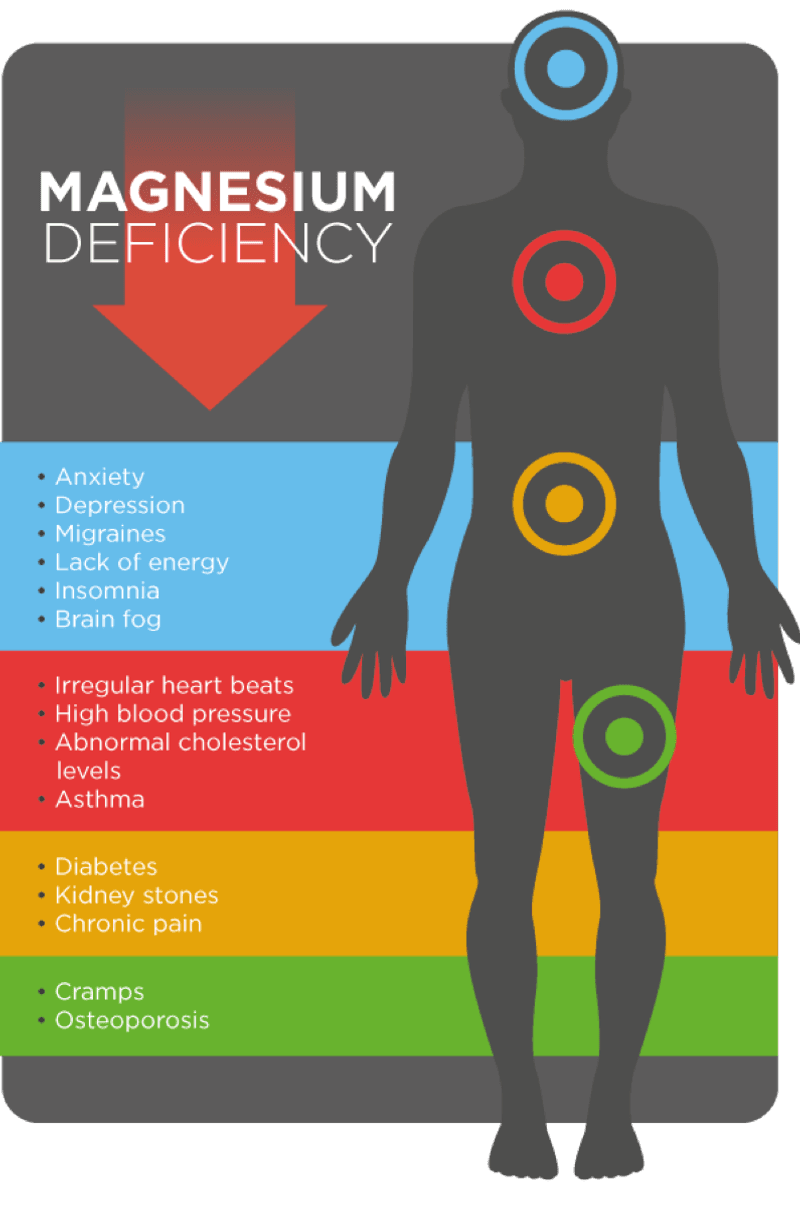
High blood pressure is a silent health threat that can be exacerbated by magnesium deficiency. Magnesium helps regulate blood pressure by aiding in the relaxation of blood vessels.
Eating bananas, which are high in magnesium and potassium, can contribute to healthier blood pressure levels. Enjoy them as a snack or in smoothies for a delicious way to support your heart health.
With a diet rich in magnesium, maintaining a healthy blood pressure becomes more achievable.
7. Osteoporosis

As we age, osteoporosis becomes a serious concern. Magnesium is vital for bone health as it helps in the assimilation of calcium, crucial for strong bones.
Consuming dairy products like yogurt can provide your required magnesium and improve bone density. Not only do they support bone health, but they also offer a tasty way to incorporate important nutrients.
Incorporate yogurt in your daily diet for a proactive approach to maintaining bone strength and health.
8. Asthma

Breathing easy is something many take for granted, but for asthma sufferers, this can be a challenge. Magnesium relaxes the bronchial muscles and plays a role in lung function.
Leafy vegetables, such as Swiss chard and collard greens, are great magnesium sources that may help manage asthma symptoms. These greens are versatile, adding nutrition and taste to any meal.
Incorporate them into your diet for potentially easier breathing and better overall lung health.
9. Irregular Heartbeat
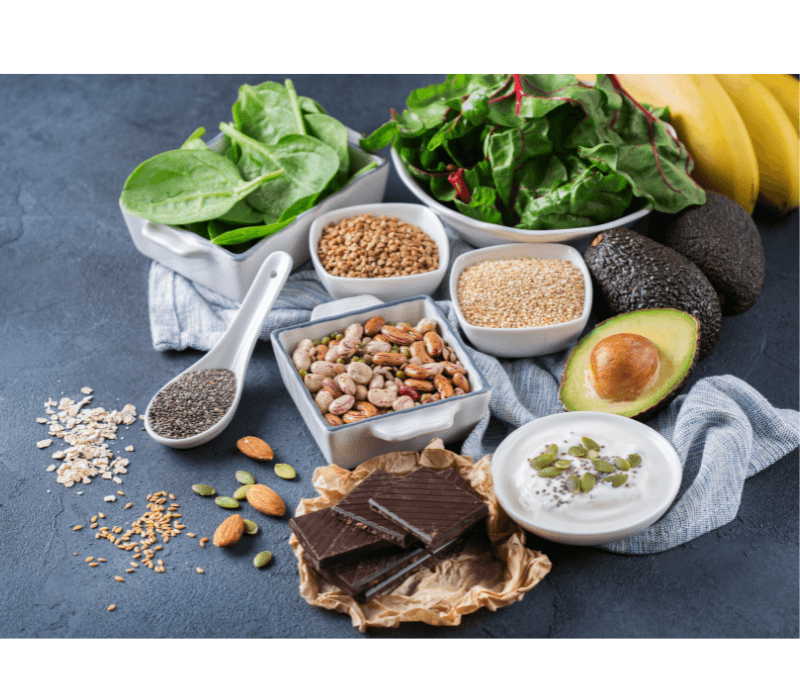
An irregular heartbeat, known as arrhythmia, can be unsettling. Magnesium is essential for maintaining a steady heart rhythm and normalizing heart function.
Avocados are a rich source of magnesium and can support heart health. Whether spread on toast or added to salads, they offer a creamy, heart-healthy boost.
By including avocados in your diet, you may help ensure your heart keeps a steady beat.
10. Memory Problems

Memory lapses can be frustrating and may be linked to low magnesium levels. This mineral supports brain health and cognitive function.
Incorporating black beans into your meals can enhance memory retention and focus. These beans are not only nutritious but also versatile, making them an easy addition to soups and stews.
With a diet that includes magnesium-rich foods, you might find yourself more mentally sharp and attentive.
11. Numbness and Tingling

Numbness and tingling sensations can be alarming, often signaling magnesium deficiency. Magnesium is crucial for nerve health and sensory processing.
Sunflower seeds are a tasty snack that can help alleviate these sensations due to their high magnesium content. Enjoy them roasted or sprinkled over salads for added crunch.
By integrating sunflower seeds into your diet, you might experience fewer uncomfortable tingling episodes.
12. Food: Dark Chocolate

Who says healthy eating can’t be indulgent? Dark chocolate is a decadent treat that provides a surprising amount of magnesium. Not only does it satisfy cravings, but it also supports overall health.
Each square offers a rich source of antioxidants and magnesium, making it a guilt-free pleasure. Choose chocolate with high cocoa content for maximum benefits.
Enjoying a piece of dark chocolate can be a simple yet effective way to boost your mineral intake while delighting your taste buds.
13. Food: Spinach
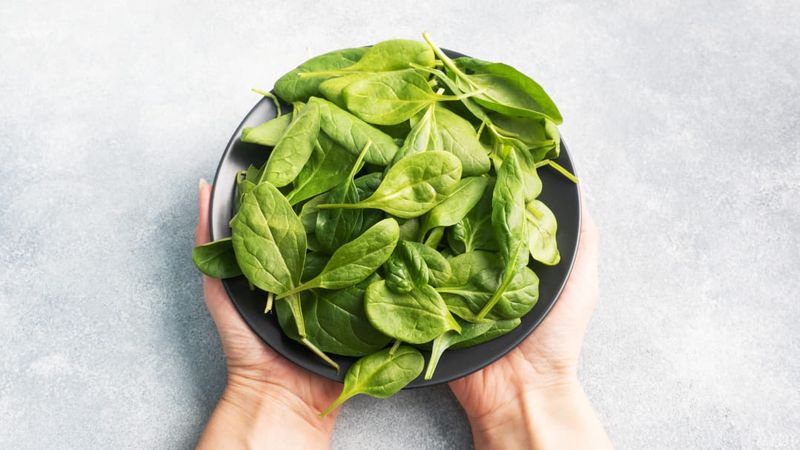
Spinach is more than just a leafy green; it’s a powerhouse of magnesium. Adding it to your meals can have significant health benefits.
Whether in salads, smoothies, or sautés, spinach offers versatility and nutrition. Its magnesium content helps support muscle and nerve function, essential for daily life.
Incorporating spinach is an easy and delicious way to ensure you’re meeting your body’s magnesium needs.
14. Food: Almonds
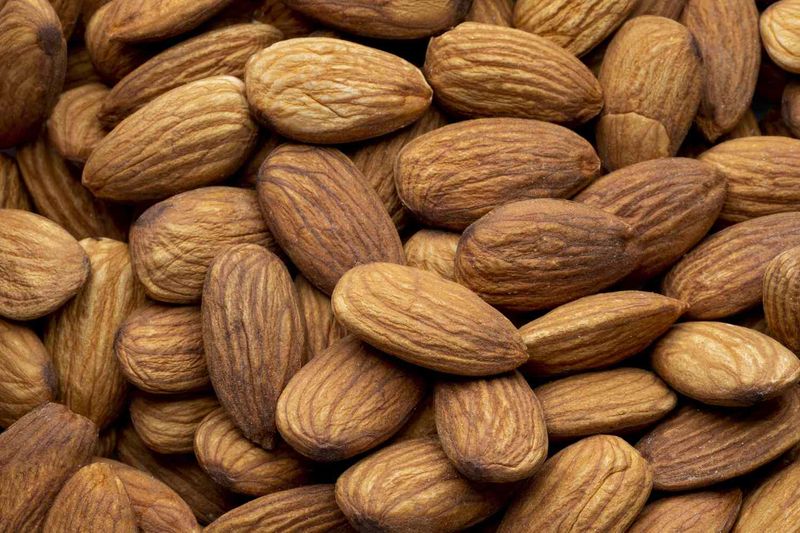
Almonds are not only a convenient snack but also a fantastic source of magnesium. They’re perfect for on-the-go munching or adding a crunchy texture to dishes.
With their natural sweetness and rich nutrients, almonds support bone health and energy production. A handful a day can make a significant impact on your magnesium levels.
Including almonds in your diet is a tasty way to support health and keep your energy levels up.
15. Food: Avocado
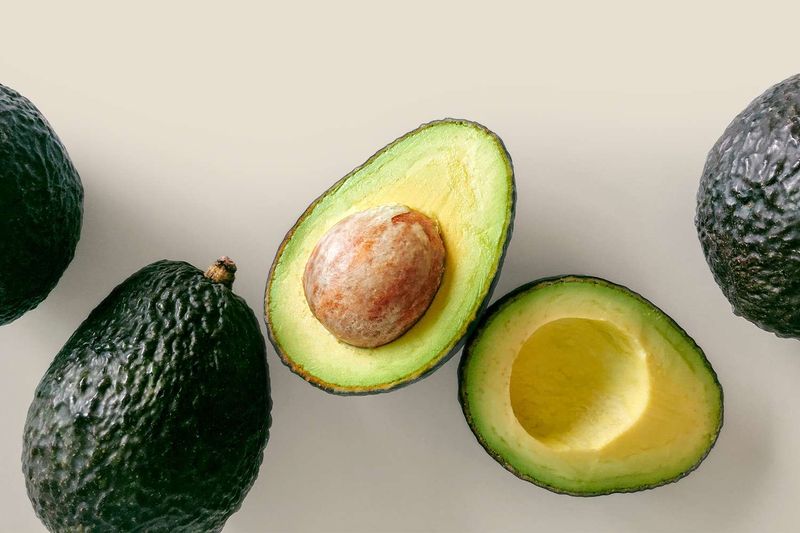
Creamy and delicious, avocados are a favorite for many. They are also a great source of magnesium, essential for heart health and nerve function.
Enjoy them mashed on toast, sliced in salads, or blended into smoothies. They’re versatile and pair well with various flavors, making them easy to incorporate into meals.
Adding avocados to your diet is a delicious way to ensure adequate magnesium intake.
16. Food: Yogurt

Yogurt is not only a refreshing snack but also an excellent source of magnesium and probiotics. These nutrients support digestion and bone health.
Enjoy yogurt on its own, or mix it with fruits and nuts for a nutrient-rich breakfast. It’s a versatile food that fits well into any diet.
Incorporating yogurt into your meals can enhance both your digestive health and magnesium intake.
17. Food: Pumpkin Seeds
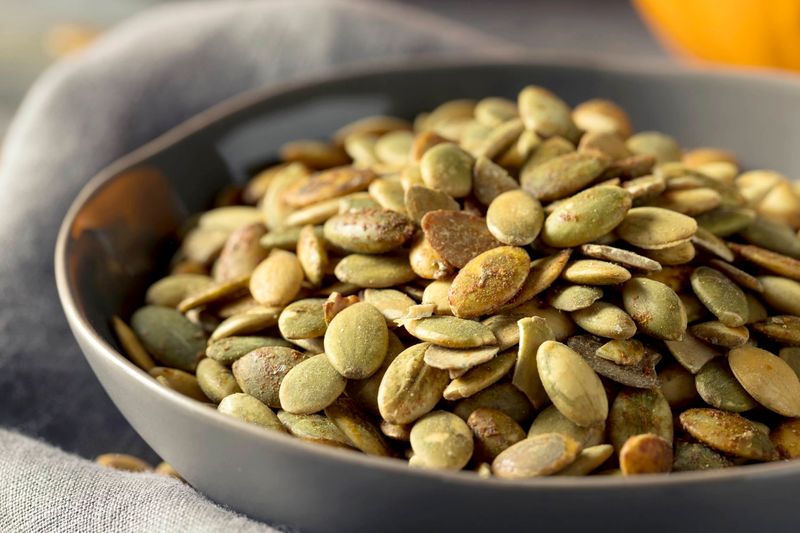
Pumpkin seeds are a small but mighty source of magnesium. These seeds are perfect for snacking or adding crunch to salads and baked goods.
Rich in nutrients, they support muscle function and energy levels. A small serving can provide a substantial magnesium boost, making them a smart addition to your diet.
Including pumpkin seeds is a delicious way to increase your magnesium intake while enjoying a crunchy treat.
18. Food: Black Beans
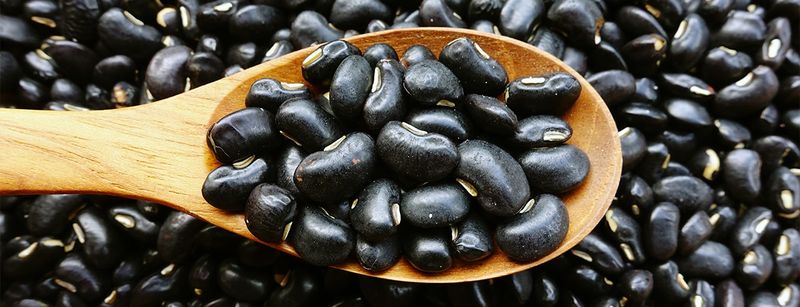
Black beans are a staple in many cuisines and a rich source of magnesium. They support brain health and energy production, essential for daily functions.
Incorporate them into soups, stews, and salads for a filling and nutritious meal. Their versatility makes them easy to include in various dishes.
Adding black beans to your diet is a flavorful way to boost your magnesium intake and support overall health.
19. Food: Quinoa
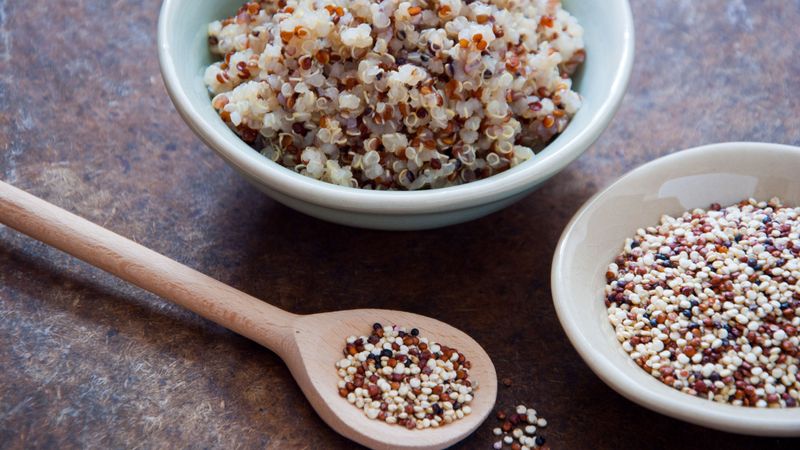
Quinoa is not only a trendy grain but also a powerhouse of magnesium. It’s perfect for those seeking a gluten-free, nutrient-dense food option.
Use quinoa as a base for salads, bowls, or as a side dish. Its mild flavor and fluffy texture make it a versatile ingredient.
Incorporating quinoa into your diet is a smart way to ensure you’re getting enough magnesium while enjoying a tasty meal.
20. Food: Mackerel

Mackerel is a flavorful fish that’s rich in magnesium and omega-3 fatty acids. These nutrients are essential for heart and brain health.
Grill it, bake it, or cook it in a flavorful sauce for a delicious meal. Its rich taste pairs well with various herbs and spices.
Including mackerel in your diet is a delectable way to boost your magnesium intake and support overall health.
21. Food: Figs
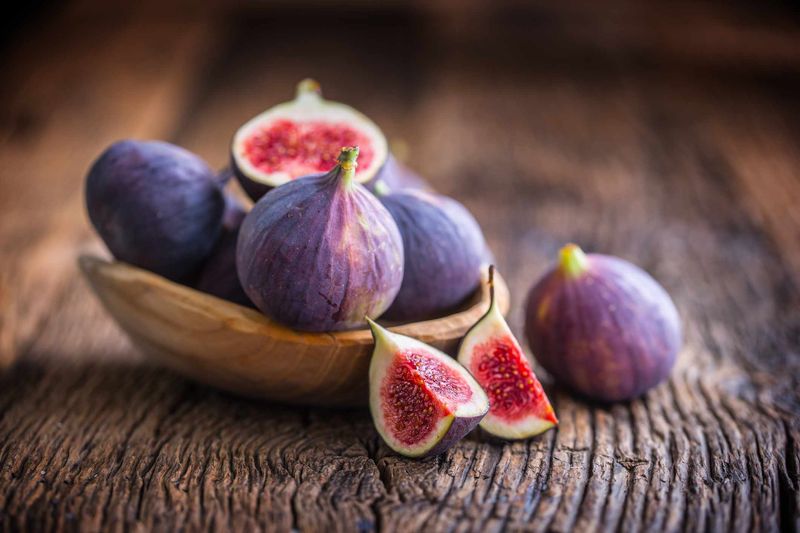
Figs are not only delicious but also a good source of magnesium. They provide natural sweetness and essential nutrients, perfect for snacking or dessert.
Enjoy them fresh, dried, or in baked goods for a sweet treat. Their unique texture and flavor make them a delightful addition to any meal.
Incorporating figs into your diet is a tasty way to enhance your magnesium intake and satisfy your sweet tooth.
22. Food: Cashews
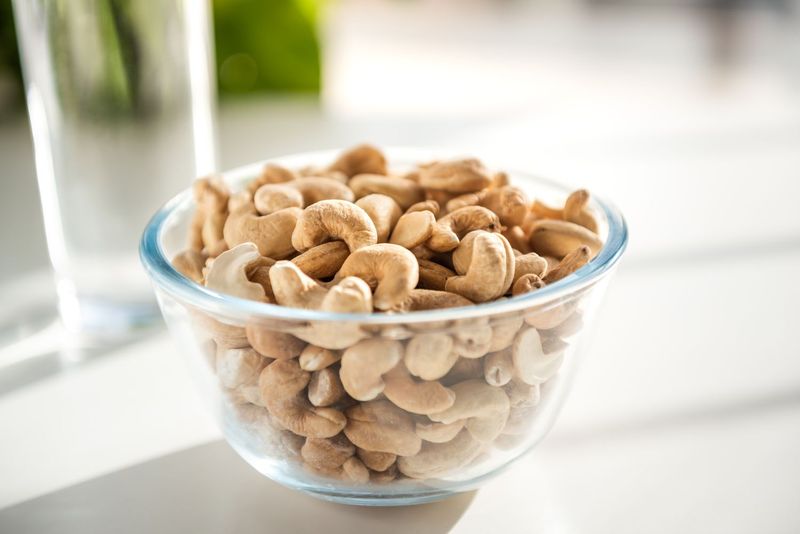
Cashews are a creamy, delicious nut that’s packed with magnesium. They’re great for snacking, cooking, or adding to desserts for extra flavor.
Their rich, buttery taste complements both sweet and savory dishes. A handful of cashews can provide a healthy magnesium boost.
Including cashews in your diet is a delectable way to ensure you’re getting enough magnesium while enjoying a nutritious snack.
23. Food: Swiss Chard
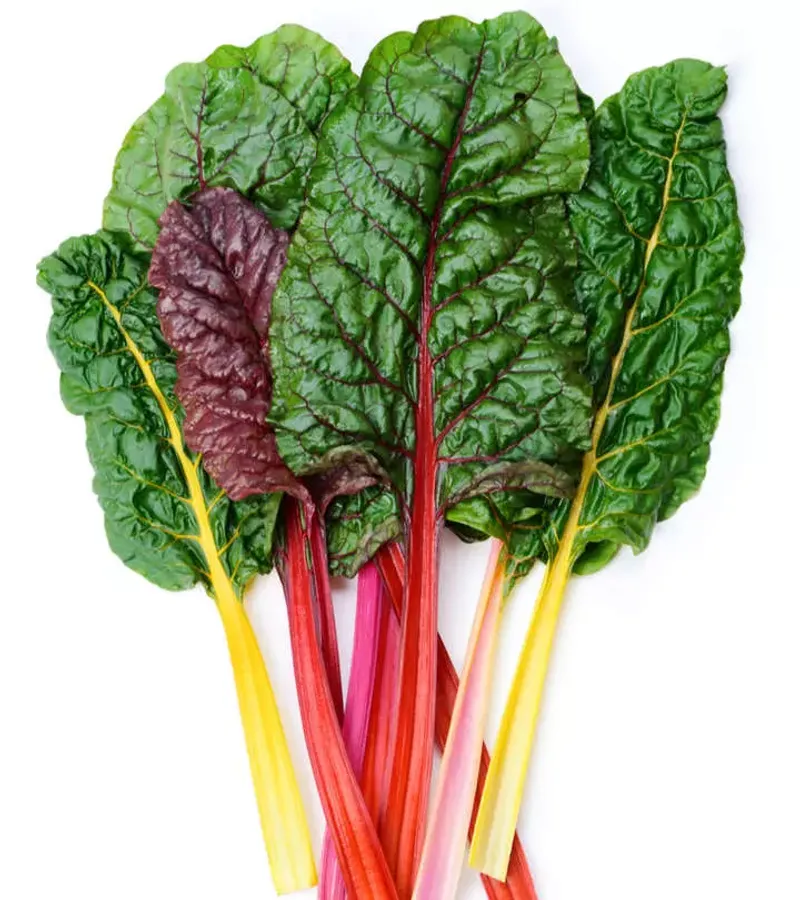
Swiss chard stands out not only for its vibrant colors but also for its high magnesium content. It’s an excellent choice for those looking to add more greens to their diet.
Sauté it with garlic or add it to soups for a nutrient-rich dish. Its versatility and mild flavor make it a favorite among chefs and home cooks alike.
Incorporating Swiss chard into your meals is a smart way to boost your magnesium intake.

